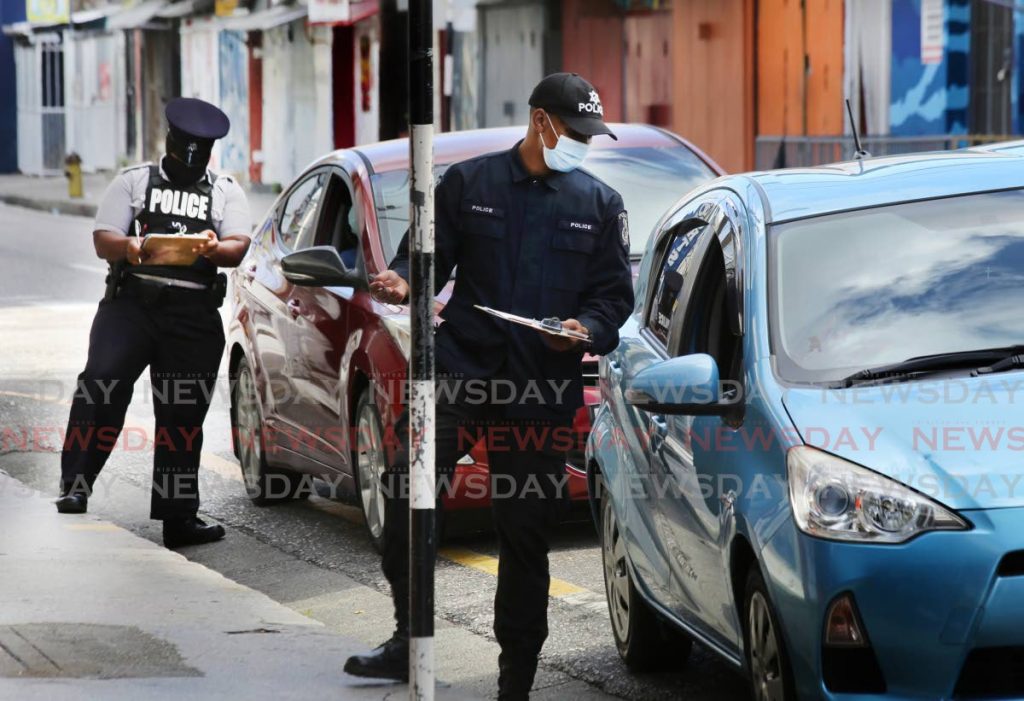Appeal Court to rule on 2013 traffic ticket

THE APPEAL Court must decide if a driver who was stopped by police on the Churchill Roosevelt Highway eight years ago, for driving while using a cellphone, can now be made to pay a ticket.
Justices of Appeal Nolan Bereaux, Mark Mohammed and Vasheist Kokaram have reserved their decision on the issue.
The judges were asked by the Attorney General to reverse the findings of a High Court judge that the police officer who stopped the woman in 2013, did not have the power to issue a summons for her to appear in court on the offence, because he did not have a ticket book with him at the time.
In his ruling in 2017, Justice Kevin Ramcharan dismissed the State’s contention that the Motor Vehicle and Road Traffic (Enforcement and Administration) Act, and the Police Service Act gave the police the power to issue a summons for a fixed penalty notice.
The Enforcement Act provides for the issuing of a notice to pay a fixed penalty (ticket) for various minor traffic offences. Under the Act, a fixed penalty notice is deemed to be a summons.
In Lisa Patricia Brown’s case, she was not issued a ticket but a summons to attend court. She successfully argued in the High Court that she was not given the option to pay the fixed penalty but instead was required to attend court.
At the magisterial court proceedings, the question of whether the officer’s failure to issue a fixed penalty notice amounted to a breach of Brown’s constitutional rights of equality of treatment and protection of the law. Justice Ramcharan found that the policeman’s action constituted a breach.
He said the Enforcement Act set out a “comprehensive mechanism” by which someone issued a traffic ticket could avoid the court process and avoid the risk of a finding of guilt against him/her. He said it also provided for fines that were significantly lower than the maximum fine a magistrate can impose under various acts and regulations.
He said it was not for the courts to fill gaps caused by administrative inefficiencies in the State apparatus, since it was best practice to issue a traffic ticket for minor offences as opposed to issuing a summons to attend court.
In its appeal, State attorney Rachael Thurab said the Police Service Act empowered the police to either issue a fixed penalty notice or a summons.
She said even if the police officer chose to go the route of a summons, Brown would not have been disadvantaged since there will be no record of a conviction against her.
On the question of sending the case back to the magistrate or giving Brown the opportunity to pay the ticket (or contest it), her attorney David Rajkumar said this cannot be done since there was a limitation period, and the ticket can only be issued at the time the officer observed the offence.
“The ticket cannot be issued after.”
Also representing Brown was Nazima Ali Knox while Rachael Jacob also appeared for the State.


Comments
"Appeal Court to rule on 2013 traffic ticket"